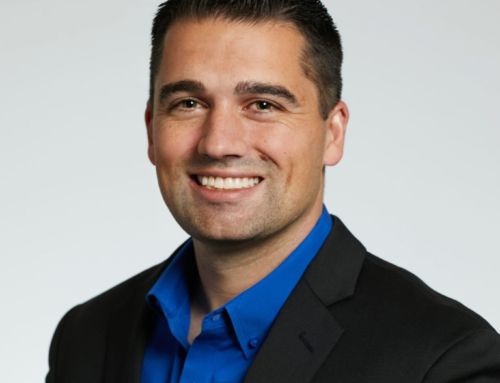By Diane Paddison, Halftime Institute Alumnus and Founder of 4word Women
Everyone I know experiences some kind of pressure to do more, whether at work, with family, at church or with countless worthy causes. We live in a culture that values achievement so highly, it’s nearly impossible to imagine not loading up our plates with responsibilities.
We pressure ourselves, too. We pressure ourselves with unreasonable expectations, with false comparisons to what we imagine or assume others are handling. Our choices and circumstances are leading to a growing number of professionals who are overworked, over-committed, and overwhelmed. It’s stressful. It’s bad for your health. It’s toxic to your relationships. And it impairs your ability to connect with and serve God well.
This might be the time you decide to say, “No.”
If the thought of setting a goal to workout 30 minutes a day, being fully present at home or just watching less TV sends your daily schedule into a tailspin, this practice of saying no and scaling back might be the perfect goal for you. It might not sound like much of a goal, but as I learned on my Halftime Journey with the help of my Halftime Coach, it’s a lot more challenging than it appears.

Make Time For a Break
If you are overwhelmed by commitments and obligations, your brain isn’t functioning much better than it would be if you were a panicked swimmer. This is why it’s vital you get your mind to a place where you are able to make good decisions. Take a “mini-retreat” weekend—even a day, morning, or an hour—whatever you realistically can do. Set some time aside that can be life-giving and restorative.
I view my time spent at the Halftime Institute as a restorative time for me, mentally and spiritually. It was refreshing to take the time to quiet all the thoughts and tasks and expectations rushing through my mind and to organize everything into a feasible professional plan. This not only allowed me to become more sure of my future life path, but it also allowed me to achieve a sense of peace and joy that had long been absent in the busyness of my life.
Recently, my life has been dominated by the devastating illness of my daughter Annie. It is mentally and emotionally overwhelming to see her in pain every day and to be constantly faced with new challenges and decisions regarding treatment options, all in addition to my other professional and familial commitments. I’ve learned the only way to keep moving forward is for me to force myself to periodically retreat.
I think of this as a chance for me to come up for air. I try to do a short version of this every day and plan a bigger break every three or four weeks.
Practically speaking, for my bigger breaks, I make sure I get good sleep the night before, and then first thing in the morning, I spend some time exercising (even if you just go for a walk around the block, the movement and fresh air are good for the brain and the body). Then I fix a nice big decaf mocha just the way I like it—just something refreshing that makes me smile. It’s a small thing, really, but this little bit of “self-care” is healthy and good. Finally, I settle into God’s Word (when I’m feeling overwhelmed, I often turn to Isaiah 55) and pray for healing and direction.
Your rest and restoration time might look different than mine, and that’s okay, but you absolutely must take the time. The goal is to break free from that frenzied, panicked place and get your heart and mind clear and ready for healthy decision making.
Know Where Your Time Is Going

For comparison, also make a list of your strengths, passions, and priorities. Try to understand how each of the items on your first list (the to-do list) relates to those items on your second list. This is where it’s especially helpful to have outside input like a coach. Sometimes our identity can get so wrapped up in our choices and commitments that it becomes hard to view our lives with clarity. Getting someone else involved can provide invaluable perspective.
Take Pruning Shears To Your To-Do List
Based on what you’ve learned from your reflection, it’s time to start cutting back. Look for items on your to-do list that are taking up lots of time or energy. Write or talk through the very bare-bones of what you absolutely need to do to keep a healthy spiritual foundation, take care of yourself, maintain essential relationships, and do well at work. There will probably be a lot fewer things than you think. Over the long run, there is a lot of time to serve in many different ways, but life comes in stages, and you don’t have to tackle everything at once.
Cutting back isn’t necessarily easy, even when you know you need to. Besides the basic discomfort that comes along with saying no to some people and opportunities, there’s a deeper issue of value and self-worth at play. In our do-more culture, we’ve all learned to associate busyness with importance and purpose, believing that if we’re not always doing “something,” you must be wasting your time.
Think of all the times in the Bible when we are called not to action, but to stillness (Psalm 46:10), to consideration (Job 37:14), and to waiting (Isaiah 40:31). Reflect on Isaiah 30:15: “This is what the Sovereign LORD, the Holy One of Israel, says: ‘Only in returning to me and resting in me will you be saved. In quietness and confidence is your strength. But you would have none of it.’”
As you begin the hard work of breaking free from doing more and determining to stick with the goal of saying no, keep in mind you’re not just doing less. By cutting back, you’re opening up. You’re creating space to breath, to grow, and to hear and respond to God’s call so you too can discover and live out your Ephesians 2:10 calling. What is more important than that?
Learn more about how a Halftime Coach can help you discover a life with more joy, meaning and impact.







